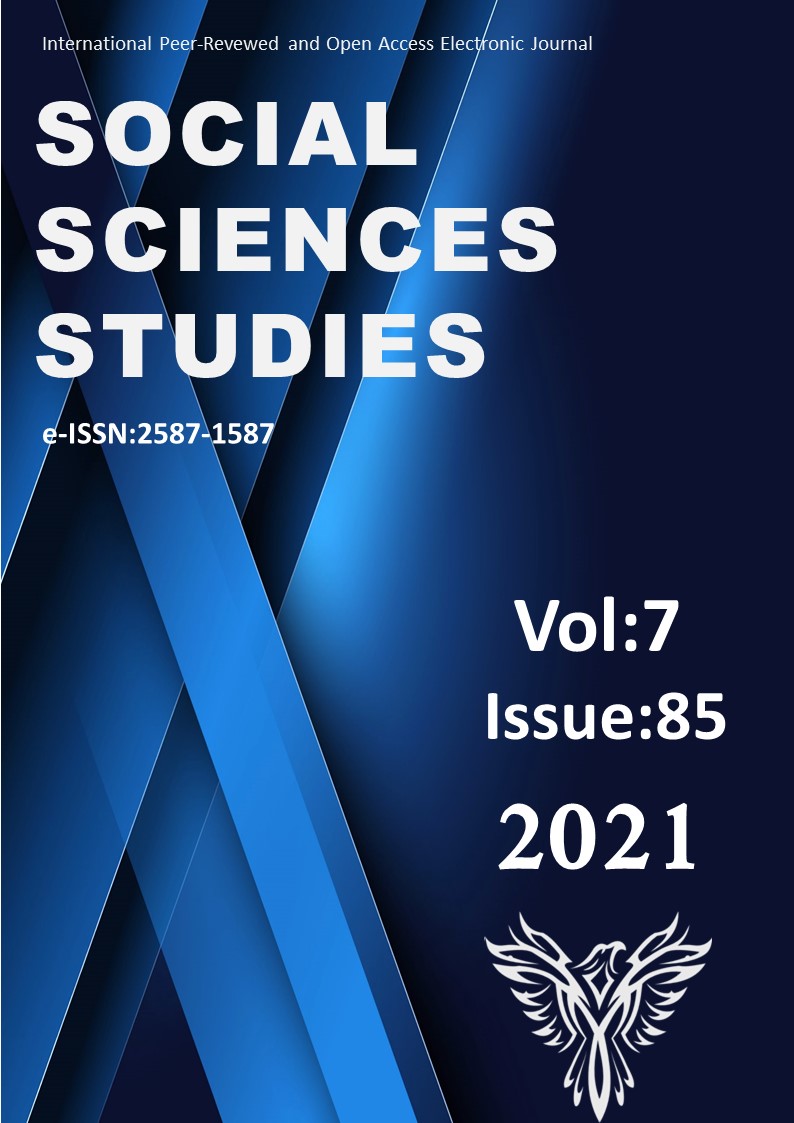Author :
Abstract
Günümüz çevre bozulmasının sebeplerini ve çözüm yollarını araştıran çok sayıda çalışma mevcuttur. Ancak yine de çevre sorunları gün geçtikçe canlı yaşamını daha çok tehdit etmektedir. Çevre sorunlarının en büyük sorumlusu olan insanın, çevrenin olumsuz etkilerini ortadan kaldırılmasında aktif olması gerekmektedir. Toplumları oluşturan bireylerin çevreye karşı sorumlu oldukları bilincine sahip olmaları önemlidir. Bu şekilde birer ekolojik vatandaş olarak hareket eden bireyler, çevrenin sürdürülebilirliğinin sağlanmasında oldukça önemli görevleri yerine getirmiş olurlar. Ekolojik vatandaş bilincine sahip bireylerin oluşmasında en önemli faktör eğitimdir. Öğretmenler ise bireyin eğitim-öğretim hayatındaki önemli aktörlerdir. Özellikle eğitim-öğretimin ilk yıllarında görev alan okul öncesi ve sınıf öğretmenlerinin öğrencilerin ekolojik vatandaş olarak yetişmesinde önemli rolleri bulunmaktadır. Diğer taraftan öğretmenlerin öğrencilerini ekolojik vatandaş olarak yetişmelerini sağlamaları için, öncelikle kendilerinin birer ekolojik vatandaş olmaları beklenmektedir. Alan yazında temel eğitimde görev yapan öğretmenlerin ekolojik vatandaşlık düzeylerini araştıran çalışmalar yok denecek kadar azdır. Bu bağlamda araştırmada temel eğitimde görev yapan öğretmenlerin ekolojik vatandaşlık düzeylerinin çeşitli değişkenler açısından incelenmesi amaçlanmıştır. Çalışma 110 sınıf öğretmeni ve 51 okul öncesi öğretmeni ile yürütülmüştür. Araştırma tarama modelinde olup, veri toplama aracı olarak ‘Demografik Bilgi Formu’ ve ‘Ekolojik Vatandaşlık Ölçeği’ kullanılmıştır. Elde edilen veriler Kruskal-Wallis ve Mann-Whitney U Testi ile analiz edilmiştir. Araştırmanın sonucunda cinsiyet, çevre eğitimi alma durumu, STK üyeliği, çevreyle ilgili paylaşımda bulunma ve kendilerine biçtikleri ekolojik değer değişkenlerine göre öğretmenlerin ekolojik vatandaşlık puanları arasında anlamlı farklılıklar olduğu tespit edilmiştir. Fakat branş ve çevreyle ilgili bilgi edinme yolu değişkenlerine göre öğretmenlerin ekolojik vatandaşlık puanlarında istatistiksel olarak anlamlı farklılık görülmemiştir.
Keywords
Abstract
There are many studies investigating the causes and solutions of today's environmental degradation. However, environmental problems are threatening living life more and more day by day. People, who are the biggest responsible of environmental problems, should be active in eliminating the negative effects of the environment. It is important that individuals who make up societies have the awareness that they are responsible for the environment. In this way, individuals acting as ecological citizens fulfill very important duties in ensuring the sustainability of the environment. The most important factor in the formation of individuals with ecological citizen consciousness is education. Teachers, on the other hand, are important actors in an individual's educational life. Preschool and primary school teachers, who work especially in the first years of education, have an important role in raising students as ecological citizens. On the other hand, teachers are expected to become ecological citizens, in order to enable their students to be educated as ecological citizens. In the literature, there are almost no studies investigating the ecological citizenship levels of teachers working in basic education. In this context, it is aimed to examine the ecological citizenship levels of teachers working in basic education in terms of various variables.The study was conducted with 110 primary school teachers and 51 preschool teachers. The research was carried out in survey model and "Demographic Information Form" and "Ecological Citizenship Scale" were used as data collection tools. The data obtained were analyzed with Kruskal-Wallis and Mann-Whitney U Test. As a result of the study, it was determined that there are significant differences between the ecological citizenship scores of the teachers according to the variables of gender, environmental education status, NGO membership, sharing about the environment and the ecological citizenship level that the teachers assigned to them. However, there was no statistically significant difference in the ecological citizenship scores of the teachers according to the variables of the branch and the way of obtaining information about the environment.





